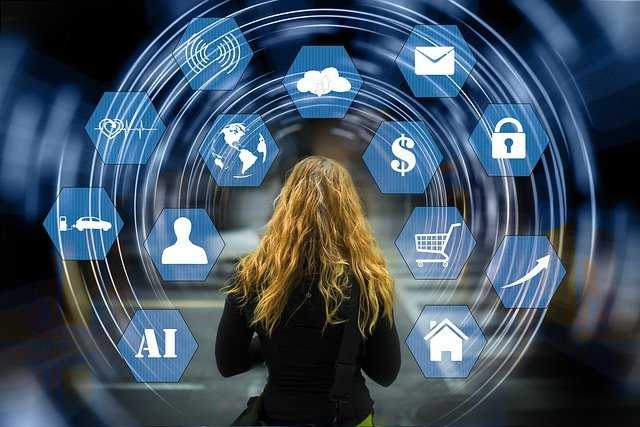What makes AI an indispensable element of Human Resources?
Technology has been enhancing HR efficiency immensely in recent years by reducing resource costs and improving learning & development initiatives. With the advent of artificial intelligence, these developments have accelerated. AI applications now augment critical HR functions, increasing the company’s operational capacity to its advantage.
AI automation provides innumerable benefits to the HR teams to manage the employees’ lifecycle from their recruiting phase through retirement. Using AI tools allows HR professionals to focus on their value-driven strategic tasks rather than mundane daily tasks.
Benefits of AI in human resource management include:
- Reduced employee turnover
- Enhanced training, appraisal, and development of employees
- Increased employee engagement
- Improved employee retention rates
- Increased overall HR efficiency
The benefits of AI are motivating a growing number of organizations to adopt this technology in human resource management. Keep reading to find out how AI is revolutionizing HR departments and how it can impact your business.
AI in human resource: Six developments transforming the HR operations
Automating repetitive tasks
AI has raised the efficiency of HR technology to an entirely new level by automating time-consuming and repetitive tasks. The HR function today does not require HR professionals to spend their time manually resolving queries, managing leave requests, or coordinating benefits.
Now that AI automates these daily activities, HR professionals can focus on their core responsibilities. They have been able to bring more value to their mentoring, motivational, and employee engagement activities at workplaces, contributing to the organization’s overall success.
Enhancing the recruitment process
Among the most significant contributions of AI in HR is its ability to automate candidate search. AI technologies now allow HR to source, screen, and interview candidates efficiently, reducing the overall time spent on the entire process.
Here are some hiring processes that AI automates:
- Sifts through thousands of resumes and screens those that match the job description
- Compares the candidate’s skills with the best employee in the organization
- Assists in collecting information from candidates
- Reduces bias in candidate selection and facilitates a more inclusive process
- Searches the database for candidates who match the job requirements
Offering a seamless onboarding experience
A good onboarding experience significantly impacts an employee’s decision to stay with the company and their likelihood of recommending the company to others. In short, a satisfying onboarding experience ensures employee retention.
Artificial intelligence improves this experience by assisting the recruits with training suggestions, offering useful information on the policies and benefits, and sharing details of important contacts in the organization. This guarantees a seamless onboarding experience.
Besides the usual HR assistance, AI also enables candidates to understand their workplaces through personalized experiences.
Customized training guaranteed
Providing employee training is a key function of Human Resources, and the use of technology has become crucial in imparting knowledge to new hires. The foray of artificial intelligence into training has produced a rewarding experience with a customized model of learning.
HR now integrates employee training software with AI-driven personalized learning materials for a better understanding. AI can also transform the learning experience in other ways, such as:
- Identifying skills gaps in candidates and informing the HR manager of the same. Human resource managers need to train candidates and fill those gaps in this scenario.
- Offering a seamless learning experience by integrating chatbots into training programs. Their availability around the clock allows them to respond quickly in real-time. Candidates can thus complete their training efficiently.
Gauging employee engagement
Employee engagement is one of the most important factors contributing to the organization’s success. Engaged and satisfied employees are more likely to stay with the organization, eliminating the fear of turnover.
Poor engagement can result in hampered productivity. AI tools like work productivity monitoring software allow HR managers to measure employee productivity and identify potential turnover among their employees.
Cognitive engines for decision making
Employees can take proactive daily decisions through cognitive engines powered by AI instead of relying on HR. For example, AI features like voice analysis can analyze employee mood and advise them before making the important client or business calls.
Similarly, benefit optimization tools allow employees to understand the likelihood of leave approvals before they actually apply for leave.
Retaining employees
Retaining employees is an important HR task that requires diligent monitoring and evaluation of employees. Now, there are AI-enabled solutions that assist HR managers in evaluating the likelihood of employee turnover.
Managers can identify unproductive or disengaged employees with the help of tools like work productivity monitoring software. Some tools even identify changes in communication and behavior and immediately report them to HR.
HR managers can use these inputs to develop plans and strategies to retain these employees.





